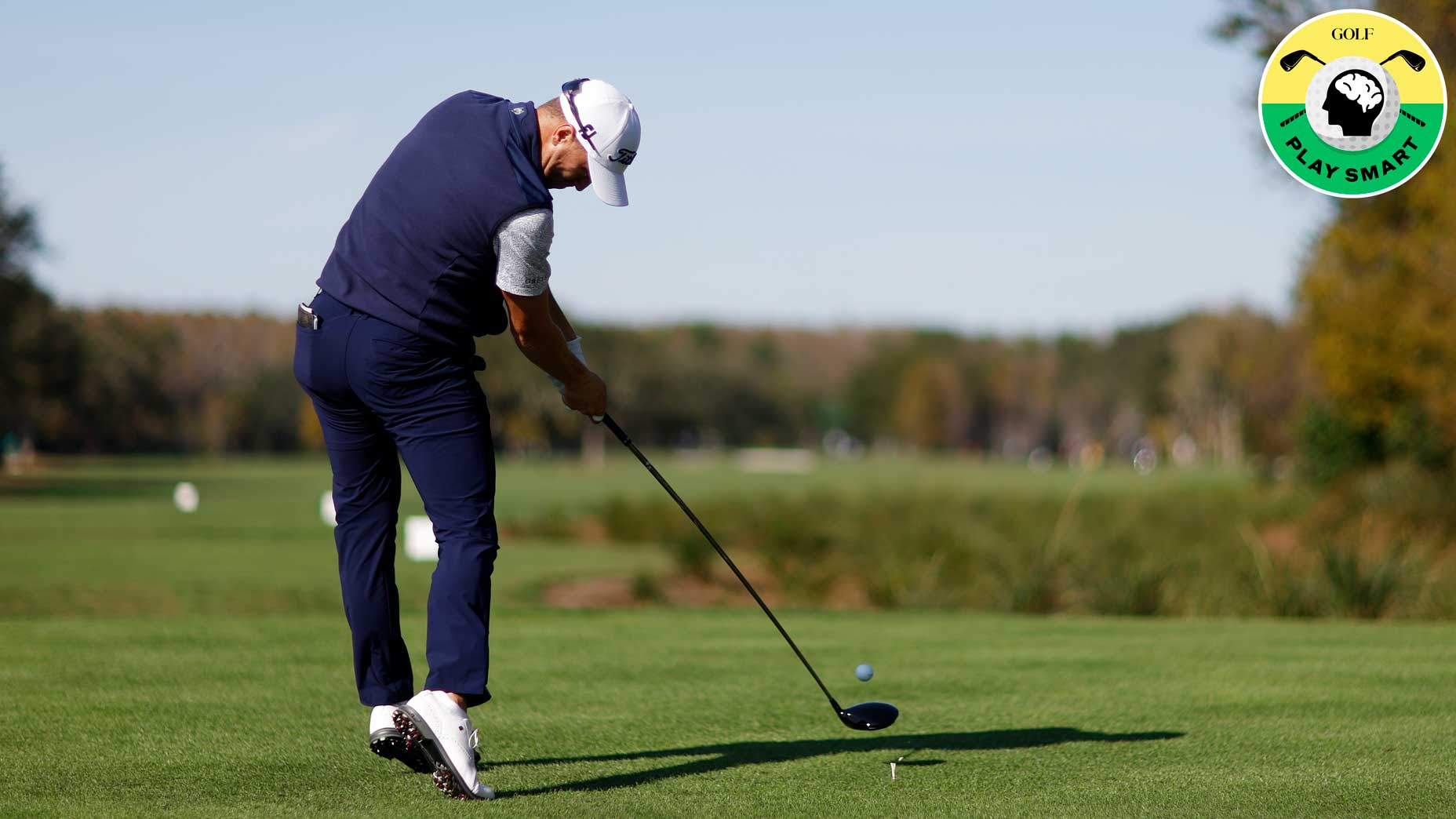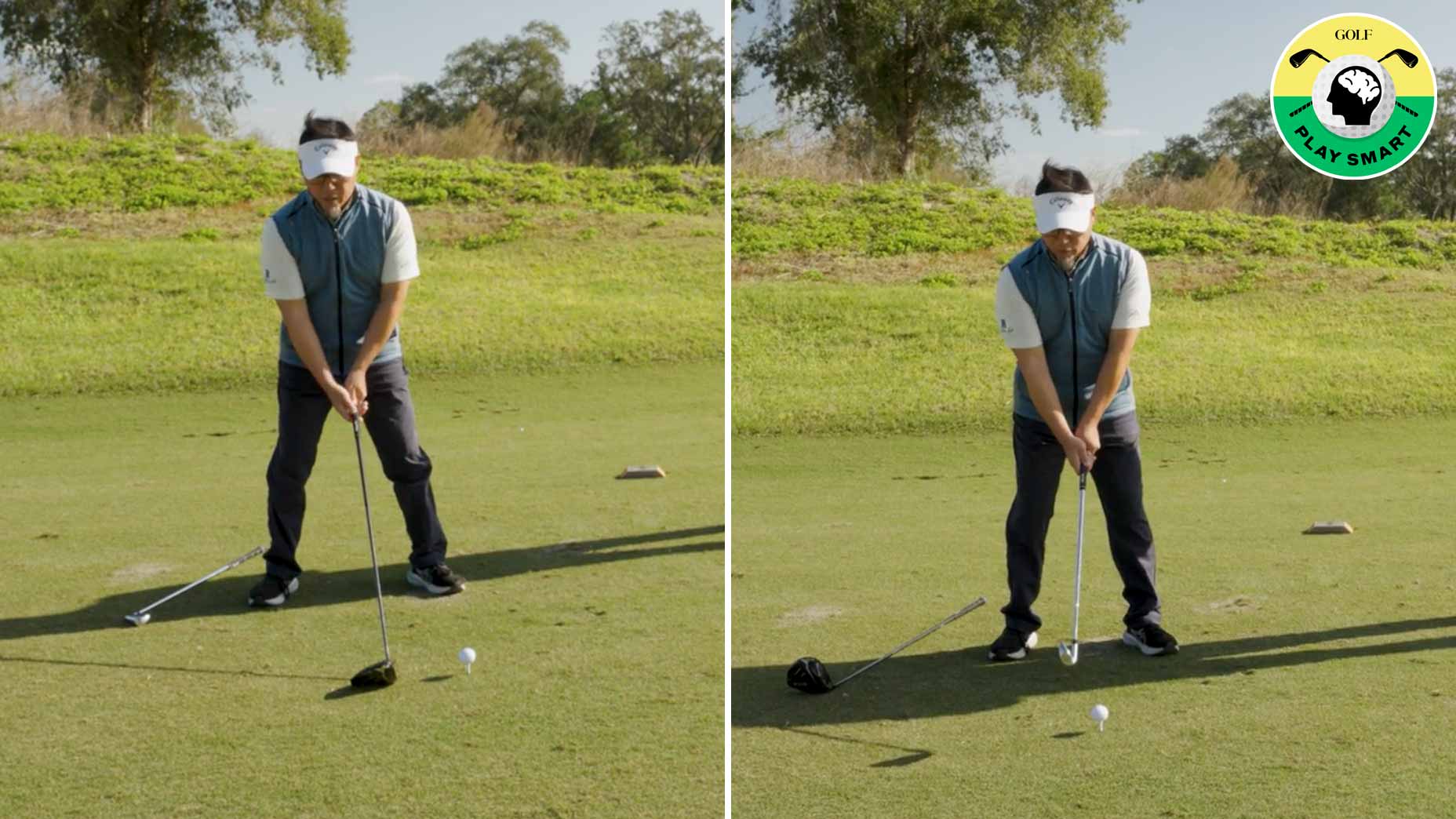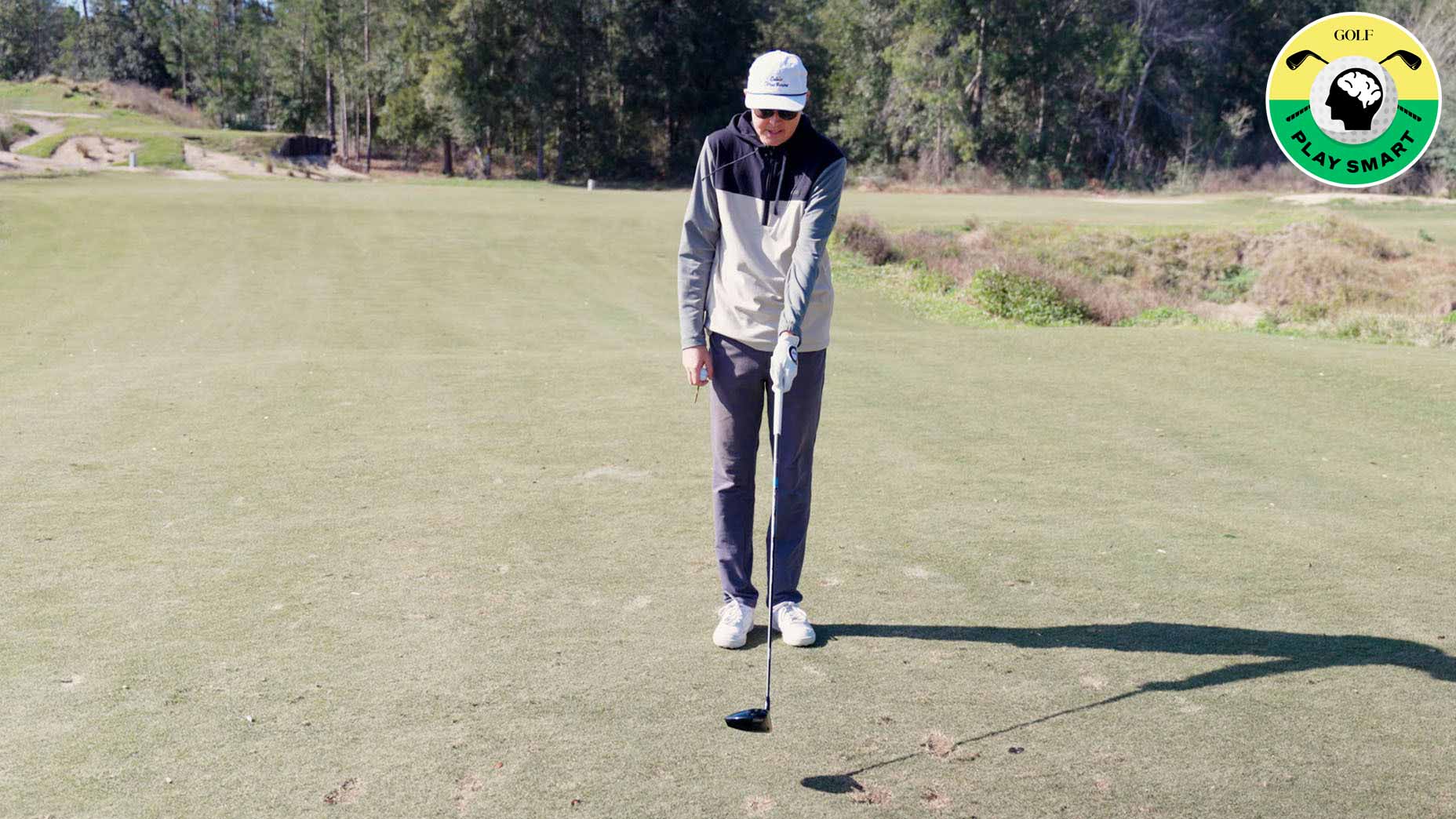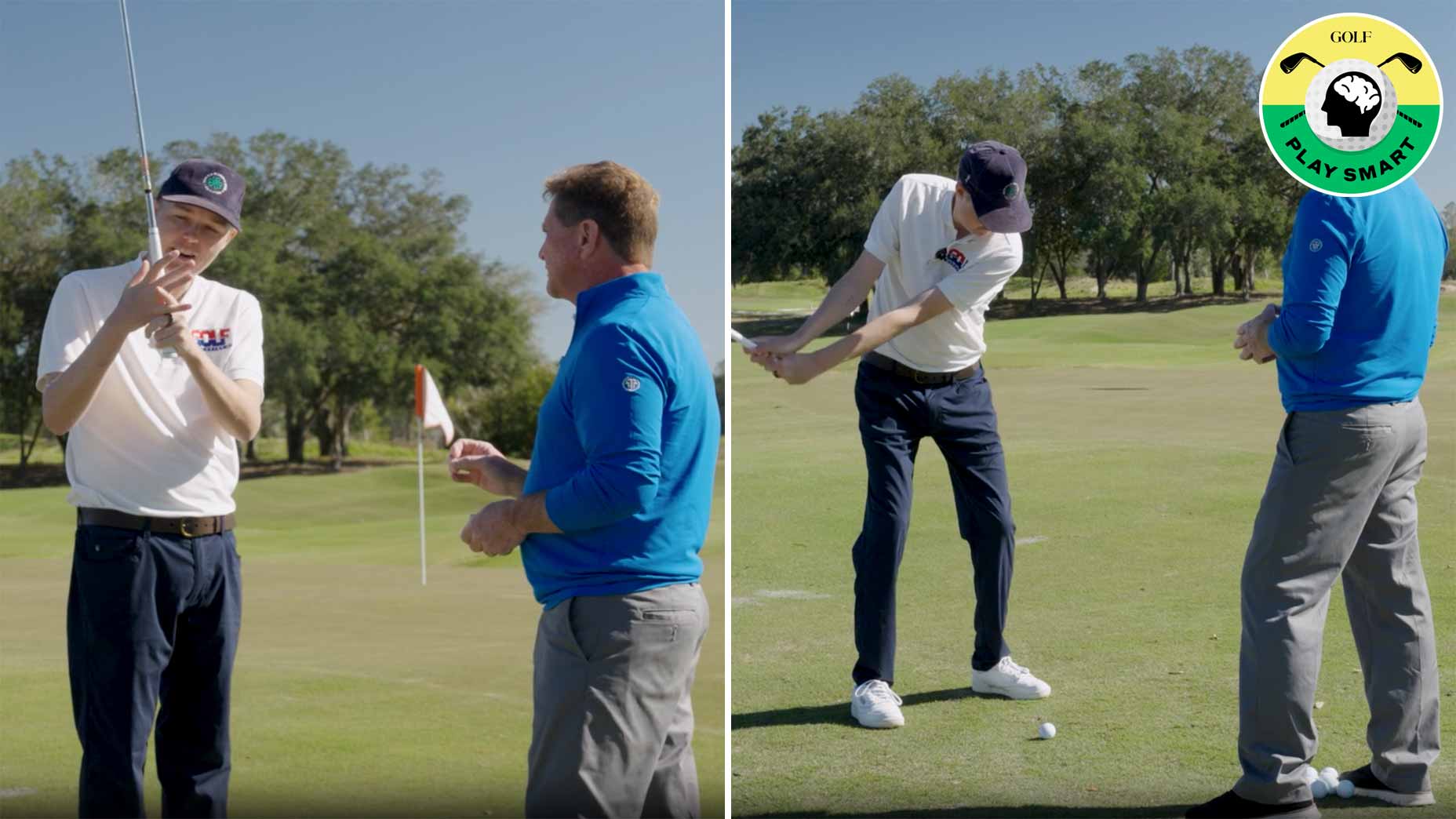Welcome to Play Smart, a regular GOLF.com game-improvement column that will help you play smarter, better golf.
Justin Thomas is plenty long — he averaged 314.3 yards off the tee last season — but sometimes, even he needs a few extra yards. And to get those, he’s got a sneaky power move he relies on.
If you’ve watched any golf over the last couple of weeks, you’ve likely seen Thomas use it — whether you realize it or not.
The move is subtle and simple. During the backswing, Thomas simply lifts his front heel off the ground a couple of inches. It might not seem like much, but it helps the two-time major winner generate a little bit of extra speed.
This was our most-read instruction story of 2022By: Zephyr Melton
“It’s probably, I would say three- to five-mile-an-hour club speed [gain] and probably four to six, seven, ball speed [gain],” Thomas said of the move. “I know I feel comfortable that if I hit it solid I can fly it 315 or so, maybe 320 doing that.”
Lifting the front heel in the backswing is a bit of an old-school move. Back before the days of 460cc driver heads, players would try anything to squeeze a bit of extra power out of their swings, and lifting the heel became a popular option.
With power dominating the contemporary game, the move is once again growing in popularity. (Even Tiger has toyed with the move.)
By lifting the front heel during the backswing, you are able to improve your weight transfer during transition, a key component for generating power. In addition, the move lengthens your arm swing — another crucial power element.
Cameron Tringale is another Tour pro who’s used the move to add serious power to his game in recent years.
Squash the grape. 🍇
— PGA TOUR (@PGATOUR) October 2, 2021
Solo leader @CamTringale shows off a quick technique to add speed to your swing. pic.twitter.com/BQ3dsCqeTg
By lifting his heel off the ground and “squashing the grape,” Tringale is training himself to shift more efficiently and generate more power.
“It’s more of a technique than a speed drill,” Tringale said. “But the byproduct of using my body more efficiently is more speed.”
If you struggle with speed in your own game, keep this power move in mind. If you can generate an extra few miles per hour off the tee, the game will become much easier.











